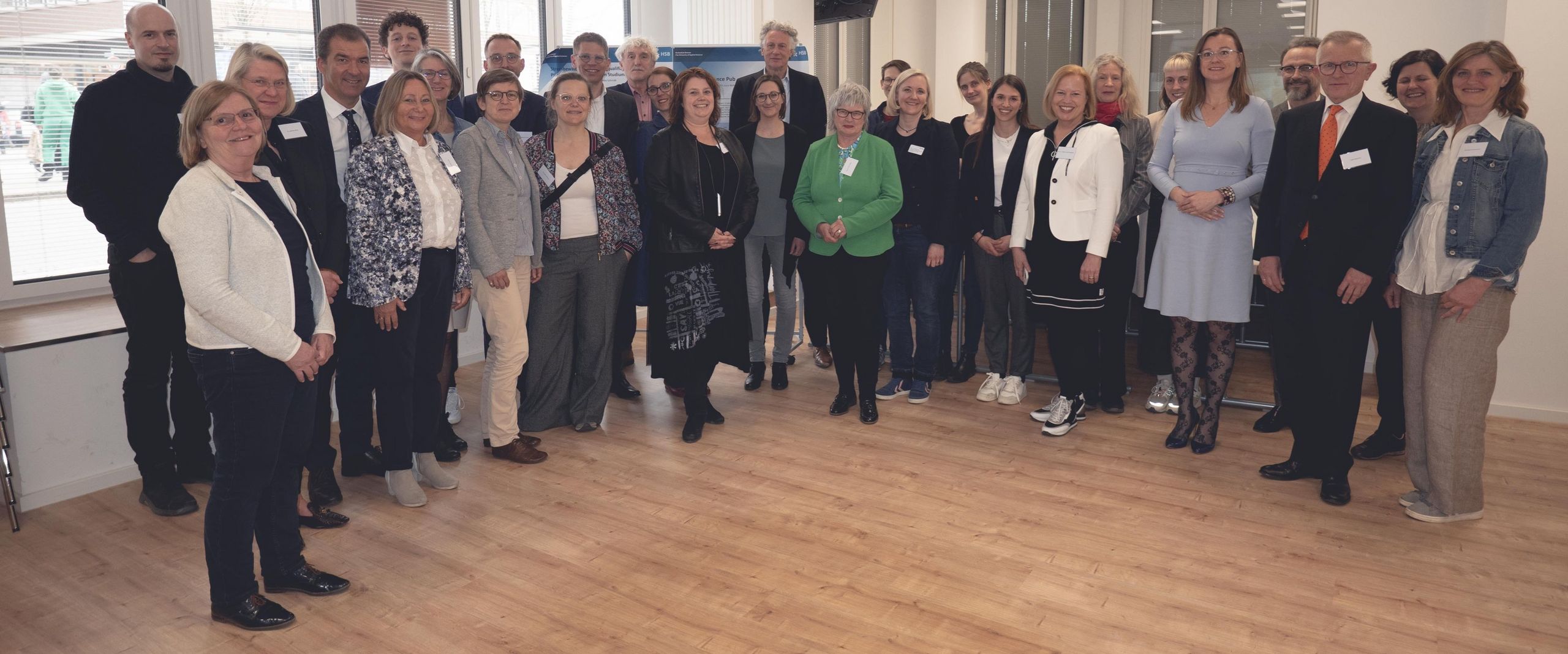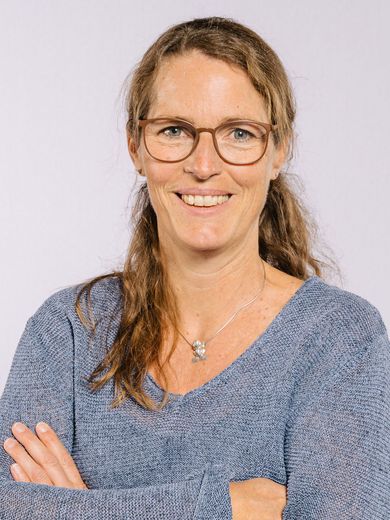
Hochschule Bremen (HSB) has around 370 partner universities worldwide. The cooperation with Hanze University Groningen (Hanze UAS) is its longest standing and considered to be among its most important. Ever since the 1970s, they have been implementing joint programmes and projects in teaching and student studies, research, and at management level. This partnership was strengthened a few years ago with the founding of a networked joint European university. In the European university alliance called STARS European University – STARS EU for short – Hanze UAS is the lead and HSB is a founding member. A delegation from Hanze University Groningen visited Bremen on 18 April 2023 to intensify and expand the cooperation. Also present were the Honorary Consul of the Kingdom of the Netherlands in Bremen, Hylke Huibert Boerstra, and Ellen Ipenburg-Tomesen, counsellor for education and science at the Dutch Embassy in Berlin.
The occasion was the Dutch public holiday of King's Day which falls on 27 April 2023.
"In the spirit of our successful and long-running cooperation, we met for a joint workshop and collegial exchange of views and information," says HSB President Prof. Dr. Karin Luckey. "We are united by a common goal: to support regional development and social transformation strategically and with qualified professionals." Discussion focused particularly around the thematic areas "Healthy Ageing", "Entrepreneurship" and the potential of the European university alliance "STARS EU". The abbreviation stands for Strategic Alliance for Regional Transition European University.
HSB took advantage of the occasion to present its simulation lab at the City Campus. Here, generously spaced over two entire floors, one finds everything needed to teach students a selection of reality-based contexts experienced in the nursing and health professions and to acquire practice-oriented competences. The main features include a nursing facility, a fully equipped flat with nursing bed to reflect the situation of home care, and a realistic delivery room. Hanze and HSB lead the way in the academisation of the nursing and health professions – both in research and in transfer to practice.
We have more than 900 cooperation agreements worldwide, but Hochschule Bremen is our most important and our longest standing partner," says Paul Ganzeboom, Hanze University's Dean of Internationalisation. "When it comes to cooperation, we first think of Hochschule Bremen – no matter what the discipline may be. Through international collaboration, you learn from each other. Everyone benefits! This applies to professors, students, and staff alike".
Hylke Huibert Boerstra, Honorary Consul of the Kingdom of the Netherlands: "One of the tasks of an Honorary Consul is to support and promote the establishment and maintenance of international cooperation. I am proud to be here at Hochschule Bremen to welcome their partner, Hanze UAS from the country of my parents, to my home in Bremen. Both institutions have been pioneers of what is now shaping Europe's university and research landscape under ERASMUS."
One example of intercultural, interdisciplinary and cross-university cooperation in teaching and student studies is the "Change Management Business Game Seminar" (CMBG), which recently took place in Bremen and Groningen with more than 100 students from 36 countries.
Within the framework of a management simulation, the students had the task of dealing with a change process within a fictitious company as an international team and advising a manager on how to develop the awareness, approval, motivation and performance of the employees. During the workshop, they not only learned theoretical aspects and concepts of change management, but also experienced these at first hand, accompanied and supported by structured learning exercises. Virtual collaboration tools such as whiteboarding, online quizzes and cloud-based solutions were integrated into the students' group work.
"The collaborative seminar contributes to the two universities longest running international partnership by expanding and intensifying the exchange of lecturers and students," says Prof. Dr Stephan Form, member of the Faculty of Business and Economics at HSB. "In particular, the personal contact and experience of mutual collaboration brings people closer together personally and thus opens up further perspectives for international exchange and joint development."
STARS European University combines the strengths of nine longstanding complementary European universities in an ambitious endeavour to reconceptualise institutions of higher education with the aim of creating a new kind of European University. The overall objective is to build a widespread alliance of committed higher education institutions to consolidate the future-oriented STARS European University. It aims to create a new generation of students and innovative, flexible and diverse education and challenge-based research systems that contribute to the sustainable development of individual regions and the whole of Europe with high impact.

Meike Mossig
Press Officer / Head of Referat 01
+49 421 5905 2245
Email